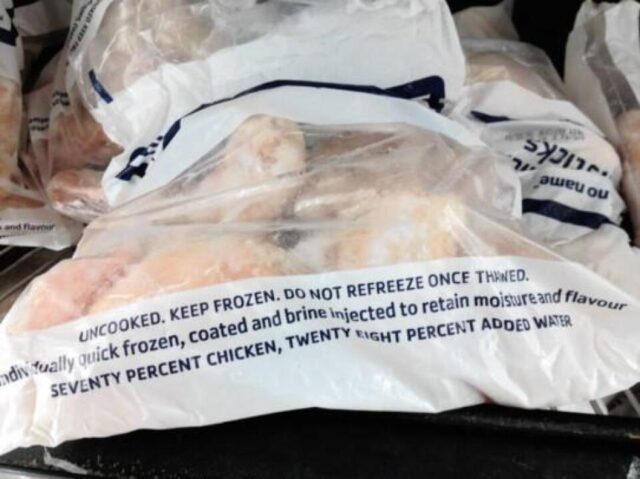The awarding of certain rebates for frozen poultry imports to curb alleged “shortages” in the local market are unnecessary, unjustified and damaging to the domestic poultry industry, says the SA Poultry Association.
THE AWARDING of certain rebates for frozen poultry imports to curb alleged “shortages” in the local market were unnecessary, unjustified and damaging to the domestic poultry industry, the South African Poultry Association (Sapa) said in a statement.
Sapa, which guards interests of the poultry industry, said it was puzzled by the International Trade Administration Commission’s (Itac) reasoning, which recommended to the Department of Trade, Industry and Competition’s Minister Ebrahim Patel that certain rebates be implemented to curb alleged “shortages” in the local market.
This follows a report released last week backdated to December 15, 2023.
Izaak Breitenbach, the general manager of Sapa’s Broiler Organisation, said the industry was recovering from the worst avian influenza outbreaks in the country’s history, but neither poultry farmers nor industry analysts were expecting any shortages now that the threat had abated.
He said that Itac, however, had calculated that the market would experience a shortage of 172,000 tons this year and had awarded 65 permits to allow importers to claim rebates on their orders.
Some of these rebates would apply to bone-in chicken, effectively negating the hard-fought anti-dumping duties agreed to in the Poultry Sector Master Plan and were counter to the master plan’s objective of curbing chicken imports, he said.
Breitenbach said it was ironic that Itac was the institution that calculated the material harm done to the local industry because of dumped poultry product, yet it had approved 65 permits, some of which would enable importers to purchase dumped product.
The 65 permits issued by Itac were valid from January 26 to April 27, 2024, and the import quota for the first quarter was 43,000 tons.
Last year, the poultry association guaranteed South Africa that it would not experience any shortages over the festive season, and there were none.
The association and its members were confident in its calculations and its approach in supplying South Africa with chicken, as the last reported shortages was more than three years ago. Capacity had grown significantly in the past five years as the industry’s investments totalled more than R2.1 billion, creating thousands of new jobs and bolstering South Africa’s food security status in the process.
Breitenbach said these rebate permits were undoing that work. “They are designed to encourage additional chicken imports when the country does not need them. They will cause further harm to the South African poultry industry, which is beset by challenges on all sides. It is recovering from the unprecedented avian influenza outbreaks in 2023 with no aid from the government.”
In the executive summary of Poultry Products Price Monitor February 2024 published by the National Agricultural Marketing Council (Namc), according to data provided by the Food and Agricultural Organization (FAO) of the United Nations, the average international poultry meat price index in the fourth quarter of last year stood at 109.93 points, marking a 3.3% decrease compared to the 113.68 points recorded in the third quarter of last year.
Moreover, Sapa said Deputy President Paul Mashatile had announced a relief fund for the poultry industry at the National Council of Provinces in October of 2023.
This promise of aid had not materialised and the poultry industry had to yet again look inward for assistance and support. The rebates would further imperil small-scale farmers struggling to get back on their feet, while padding the profit margins for importers in order to address a problem that didn’t exist, Sapa said.
The organisation said it had recently conveyed its research and findings on the current chicken supply to the Department of Agriculture, Land Reform and Rural Development (Dalrrd), advising that there was currently no shortage of chicken on the local market.
“We are distressed that instead, Dalrrd must have confirmed the Itac calculations on shortages if Itac is issuing rebate permits. It’s confusing, damaging to the poultry industry and greatly undermining (and undoing) the work of the master plan,” Breitenbach said.
– BUSINESS REPORT








